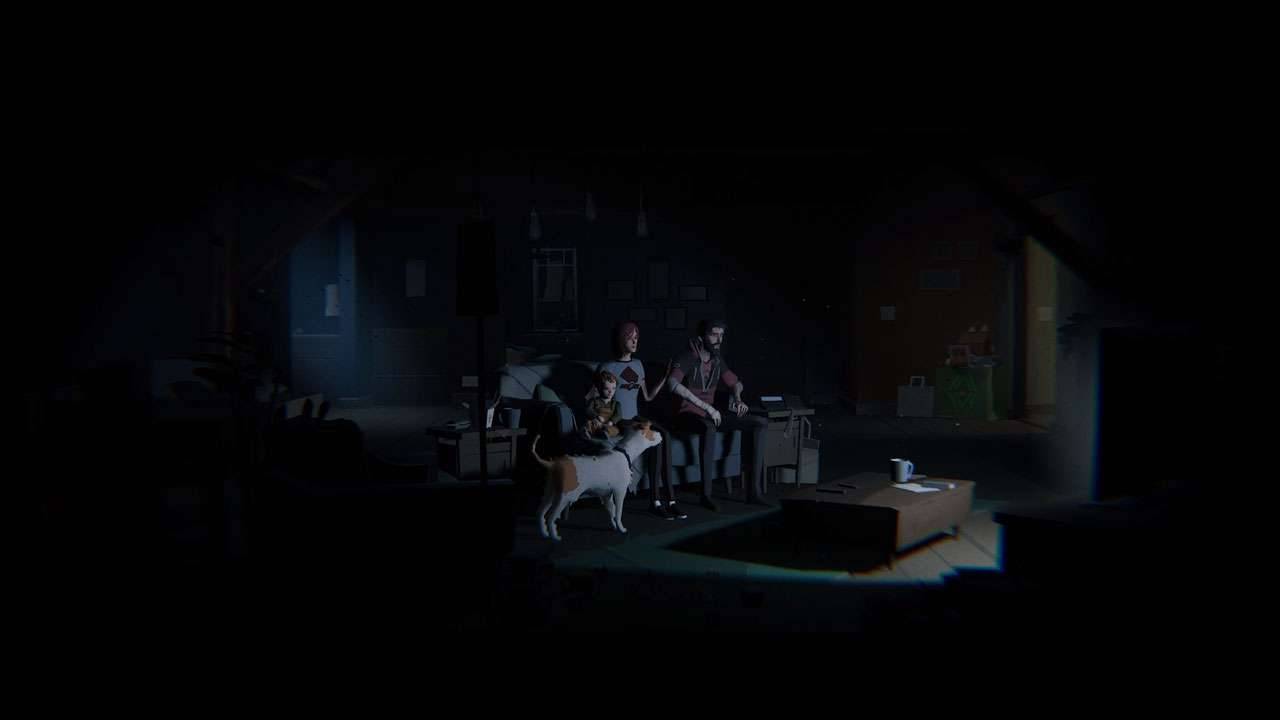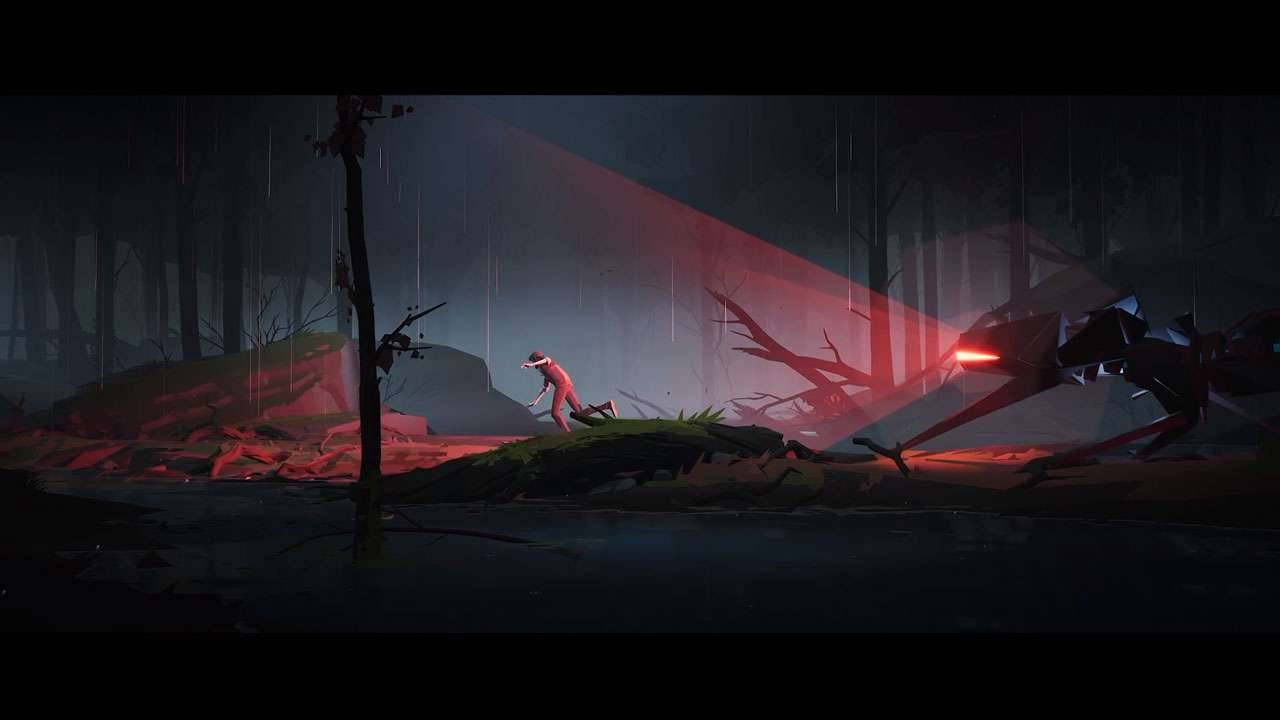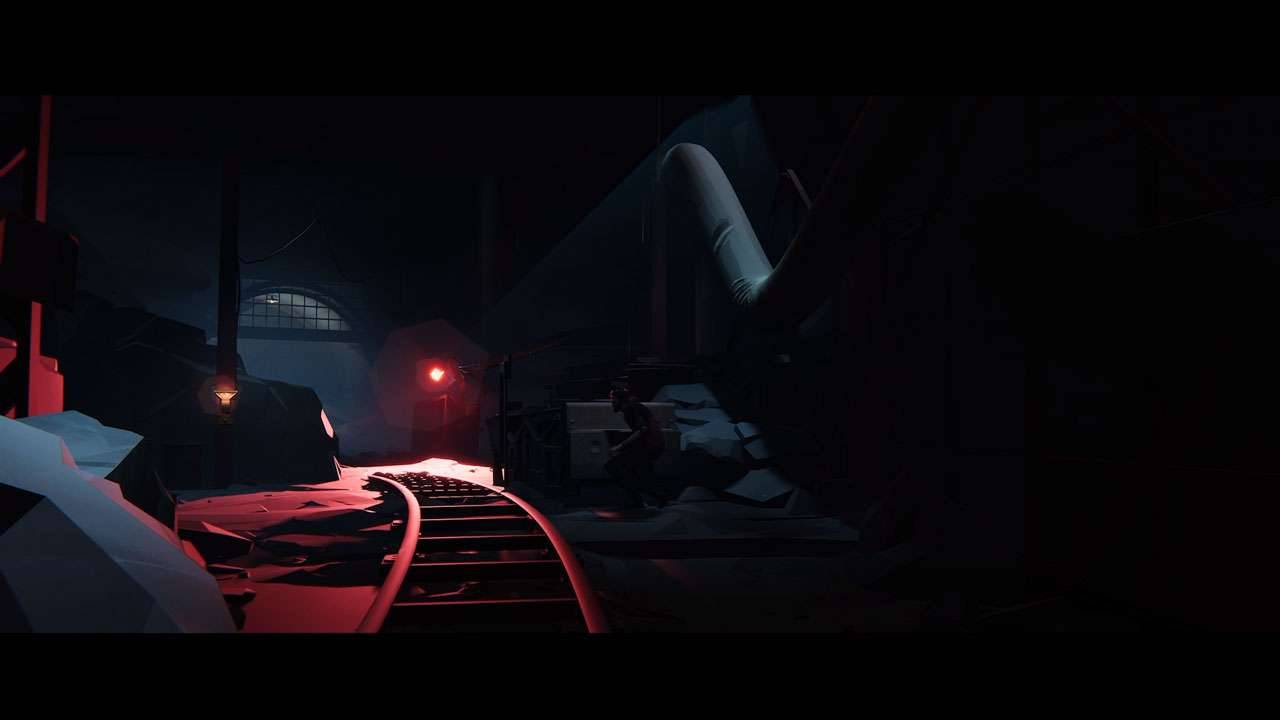Somerville Xbox Series X Review
Somerville is an innovative puzzle with great potential that falls a little short of its goal.
Reviewed by Rayan on Nov 17, 2022
Somerville strikes an oddly pleasant sense of familiarity in me. It's a short but fantastic game that captured my attention with its distinctive visual style, exciting action, and, most significantly, lovely story and emotions. Chris Olsen's Somerville began in 2014 and showed many intriguing concepts in its early phases. The game is the first release from Jumpship, a new firm started by Dino Patti, who also helped found Playdead, the developer of both Inside and LIMBO.
While it may never reach the heights of a game like Inside or LIMBO, Somerville nevertheless manages to leave a powerful impression due to its ability to grasp the genre's strongest characteristics. It's a silent game that conveys its deep story only via its characters' movements and the environment they're placed in.

Although Somerville focuses on its story rather than puzzles, for obvious reasons, early on, it was compared to Inside and Limbo. The game does resemble in many ways due to its side-scrolling puzzle platformer genre; however, this new release is different from what some may think. It has a strong science fiction story component that might puzzle the minds of many. The game is far more spacious, allowing you to walk into the landscape and solve puzzles.
While this may seem to be the natural development of things, the startling thing about Somerville is how much of its enchantment gets lost in the process. The fact that so much feeling and intimacy can be communicated without spoken or written words is, perhaps, even more remarkable.
In Somerville, a family finds itself in the center of an alien incursion where you take the father's role, who is also the protagonist of this game. Soon after, however, an occurrence that we'll let you discover for yourself will shift the family dynamic, putting you in the middle of a disaster. During the incursion, the father was assumed dead, forcing his wife and child to escape. At some point after that fateful night, the father awakens to discover a peculiar energy running through his body, and he and his faithful dog head off in search of his wife and kid.

In the subsequent mayhem, the protagonist will learn that he has gained unique abilities that will let him navigate regions dense with naturally occurring roadblocks. After accepting this, your exploration of the devastated planet may begin. You may try to escape the situation, or you might try to figure out what's going on. But that's just the theory.
Like Limbo and Inside, Somerville also has the player guessing with its cryptic science fiction narrative, suspenseful 3D set pieces, and a wide variety of contextual puzzles that frequently require you to think creatively. Occasionally, technical difficulties would arise and throw off the game's flow, but they usually ended up being rather fun. However, if you want to retry after dying, you won't have to wait more than a minute due to the game's many checkpoints. Despite this, a few of the game's death screens accidentally led to the next phase without giving me a chance to think about the situation beforehand.
Somerville combines puzzle platforming with a walking simulator while emphasizing the narrative. Using your surroundings and the items you've been provided, you'll spend the next several hours ascending through barren rural areas and figuring out how to progress through the game. You'll have to cover a lot of ground, and most of the time, you'll run mainly toward the left and occasionally toward the right or upward.

You go into eerie areas where no human habitation can be seen. While exploring, you'll spend most of your time figuring out what belongs where, which may be both challenging and rewarding. These riddles are Somerville at his finest, forcing the reader to pause and consider the world around them in the wake of each tragic loss.
The next four hours will be a trip into the unknown that will swiftly become abstract. To progress the gameplay, you will need to use the protagonist's newly acquired abilities to overcome physics-based puzzles in which you must use your control over invading foreign matter to restore order to the world. You'll have to experiment with different strategies to solve the game's riddles as you move through the game, thanks to the power modifiers that are gradually introduced to the mix.
Most puzzles may be easily overcome, while a few will test your resourcefulness. The game's quickness is hindered, though, by a weight that can be felt throughout the gameplay. The overall style and emotional urge to see what next usually do a fantastic job of making up for technical shortcomings. But some have a more noticeable impact. The protagonist's movements seem a bit synthetic due to the nature of the game's design, which isn't a deal breaker, nevertheless. However, there are a few places where he stumbled while engaging in action.

Somerville's strongest suit is its capacity to convey story and gameplay direction without relying on dialogue or written directions. This is where the game really succeeds. The lucidity of the visuals, the sensitivity of some motions, the deft use of color schemes, and a slick presentation guarantee that the player immediately grasps the progress of the story thread. Each element is crucial, whether it be the specifics of the threats you face in every moment or the goal set for each chapter. Sadly, even while we understood what was going on, the game barely touched the surface of the concepts it presented.
Sadly, there comes a time when the story no longer progresses in a linear fashion and ends. While the plot provides almost little direction, the gameplay isn't very directive either. There's a lot of figuring out to do when you progress. The riddles don't really make you think about anything at all. Figuring out how to solve the puzzles will be relatively easy, given the things that may be interacted with are always highlighted in yellow. As a result, there is limited opportunity for trying new things. Since the game is short, after the initial playthrough or even after completion, I went back to try out a few more things, but mostly to get a bit more on the narratives.
But there are only so many options to experiment with non-yellow items. This severely restricts a more complex gameplay environment, which contradicts the narrative. While you keep wondering for more detail on the narratives, the detailed design of the smallest details keeps you away from asking questions and moving forward to explore more. Thin objects move in response to the breeze, the protagonist leaves footsteps on the ground, and the extraterrestrial beings hunting him rip through the landscape and demolish the automobiles blocking their path.

It's a fact that the puzzles in this game, the sections of the game that really constitute playing the game, are a bit disappointing. In Somerville, the protagonist receives an alien ability at the beginning of the story and another after the first chapter, allowing you to utilize them to connect with the alien wreckage strewn all around the landscapes. This comes down to finding solutions focused on removing obstacles by changing the material of both a liquid and solid form.
Most of the puzzles are based on these two powers, which aren't very difficult to figure out. At times it felt as if the game wasn't intended to be a puzzle platformer but rather a simple journey through beautiful visuals. There are additional gameplay features, such as being chased by aliens or getting past them without being detected. Still, these sprinkling of additional mechanisms, the few intense hide-and-seek moments, don't put up much of a challenge or difficulty.
The game is divided into 14 chapters, and it will take around four hours to complete it all the way through, depending on how well you do with the different riddles. There is a wide variety of places to explore to prevent the game from becoming boring. Some of the gameplay take place in mines, while others take place in rural areas or during music concerts. There is a muted environment around, with deep silences that may mask a looming threat and alienating howls from the strange objects hovering in the atmosphere. These elements combine to create an atmosphere that makes these locations seem more foreboding.

As was previously said, Somerville's visual style is highly detailed, so the sound design is superb and adds much to the mood. Some examples of this are the distant rumble of thunder and the quiet patter of rain. The music is dynamic and rarely employed; one particularly moving sequence demonstrates your investment in the characters and the story. The protagonist breaks down in grief or groans in pain in different situations, the dog barks when there's a danger, or even for a brief moment, the word dada from the little baby makes your heart tremble. Somerville does a remarkable job of communicating feelings without the use of words. Keyboard music plays in the background at dramatic moments to amplify the audience's emotions. While the story itself can be difficult to follow, the feelings expressed in it are universally recognizable.
Somerville also breaks new ground by allowing for considerably more fluidity, a staple of its genre. Unlike side-scrolling action games, it gives liberty of movement in all directions. You can walk in whatever direction you choose; the camera follows your movements in response to the way you're facing. This seems like a promising development on paper, but the cinematic movement captured by an automated camera is both a benefit and a drawback.
The camera is sometimes placed at awkward angles, making it difficult to see what's going on or to direct the protagonist effectively. The motion is occasionally jerky and imprecise, and it doesn't help that the camera is always getting in the way. Having more area to wander but very little to engage with while doing so isn't exactly a fantastic alternative when you're stuck in a tiny setting, especially in places you don't know where to go or which items you should engage with right away.
Somerville has great potential, as not many games leave us wishing for more. It's an innovative puzzle game that falls a little short of its goal of providing a substantial and in-depth experience. It suffers from the lack of content in terms of narrative as the story relies on subtle animations leaving the rest of the plot up to the player's imagination. It has a few bumps toward the climax, and the way it suddenly reaches its end makes me wish it had been in the oven for a little longer for a different outcome. But in no way can Somerville be called an imperfect game. It still manages to tug at the emotions and deliver its central themes brilliantly, and the genre will like many aspects of the game. It's an ambitious project, and I would love to see more from such a unique initiative.
Azfar Rayan (@AzfarRayan)
Editor, NoobFeed
Senior Editor, NoobFeed
Verdict
80
Related News
No Data.

